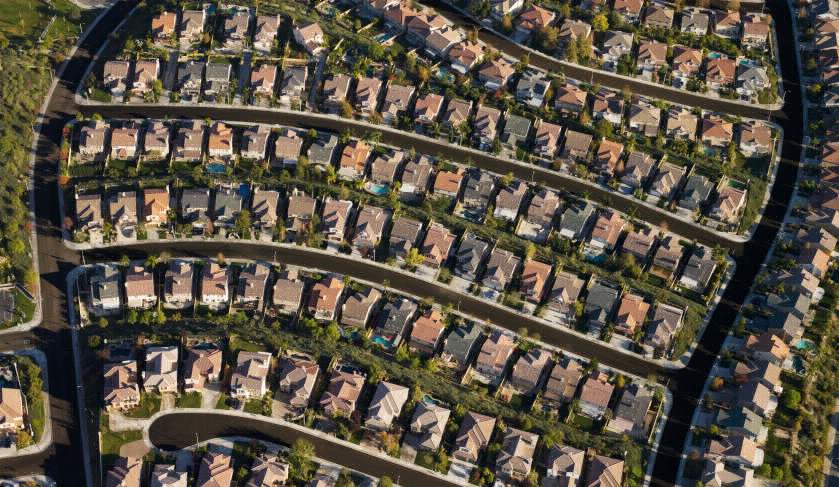What you need to know about the 'rezoning' trend in Perth
Momentum Wealth's Damian Collins has recently outlined the current property investment trends in Perth, which includes infrastructure play and rezoning.

While there won't be a lot of short-term growth in the area, the local government is relying on population growth to move the market forward.
"The [big trend that is] happening in Perth is rezoning," Damian said.
"They're looking at Perth and it's sprawled out sixty kilometres north and sixty kilometres south. It very much hugs the coast, goes a bit inland on the eastern part.
The government's looking at that going, ’Well, we're two million people now, we're going to grow to four, four and a half, over the next thirty-plus years. Well, we just can't keep sprawling forever.’ So they're really starting to put a big focus on rezoning."
Find out more about the rezoning trend in Perth as Damian shares an inside track on the current market conditions with Smart Property Investment's Phil Tarrant:
So, you're saying houses on larger blocks that can be rezoned is where investors should be focusing right now?
Damian Collins: Yeah, and that's what we've been doing. [State councils] have really focused on transport corridors, so we've got rezoning on the northern train line pretty much within activity walking areas 800 metres of the train zone, around shopping centres.
We're even seeing developers now in some of the big shopping centres build apartments at the shopping centres. So they're trying to get more activity within those areas, and even surrounding the shopping centres. What they're trying to do is reduce reliance on cars.
There's a new government coming in and they won pretty convincingly, so unless they really screw up, they're most likely to get back in, in four years’ time.
What were they voted on? What pushed them over the line?
Damian Collins: I guess one thing that was quite distinct in their public transport plan was Metronet. It's quite an ambitious plan, and that certainly did capture a lot of votes and a lot [of] people. Perth has had nowhere near the train infrastructure that Sydney and Melbourne [have] had. It's better and they've done a few things over the last decade, but it still needs a lot of work. Again, if you're going to get those livable cities... you need the transport and you need the density. It all goes hand in hand together.
Could you talk us through this public transport plan?
Damian Collins: So, there's already a train line committed out to Forrestfield... That's out the back of the airport. Now that's a suburb that's only 14 kilometres from the city as the crow flies, and you can get houses out there on 800-metre blocks for $450,000. And so, we were buying up a lot there. The prices have overshot a bit and come back a bit... their train line is getting built.
When we've looked back over periods of time where there's infrastructure coming in, a lot of the benefits aren't captured in terms of property prices until the infrastructure's on the ground... So I suspect when the train line comes through out to Forest Hills, the foothills and the area around that will certainly pick up in value. Potentially another 10 per cent when that comes up. So it's still 18 months away, at least, from completion so [there's] a lot of work to do.
Would you say it's soon to be an investment hotspot?
Damian Collins: If you're looking to make money in the next 12 months—no—because I don't think anything in Perth's going to run away in the next 12 months. But certainly, if you've got a longer-term horizon, yeah. If you can get a house for $450,000 on a train line 14 kilometres from the city, that's an 18-minute train journey into the city. You'd be lucky to get a one-bedroom apartment in Sydney or Melbourne for that price.
What's your advice for speculative property investor looking at Perth?
Damian Collins: I'd love to say, hurry up. I still think that this year, you can still get in.
In terms of your traditional apartments and stock standard sort of properties, there's not a lot of movement in those. There's been a bit of a pick-up in volume this year, and I'd love to say get in there and go now. I certainly think we're at the bottom. We're starting to recover. You don't need to buy tomorrow, but look... towards the end of 2018, I think we will have shaken out all that excess stock. So the next 12 months are about buying. If you've got a unique type of property, yes, you'll probably pay more in 12 or 18 months for development-type size. If it's just a passive normal investment, they're probably not going to move a lot in the next 12 months.
Certainly, looking at the cycle again, barring any economic calamity... I think in the next 12 months, it will be the place to put some money on.
You just need a bit of that vision to look back. I mean, I grew up in Melbourne, and Melbourne was—you pretty much rolled up the footpaths at five o'clock on a Friday afternoon in the city or even in the suburbs. So it's changed. Twenty years is a long time, and if you've got to have a bit of that vision that Perth will go the way of Melbourne and Sydney, it will be a lot [denser] and a lot [livelier]. You've just got to have a bit of that vision.
Tune in to Smart Property Investment's bonus episode entitled "Secrets of the Perth market uncovered: Invest now or wait?" to know more about the drivers of Perth’s economy and what’s being done to stimulate growth.

